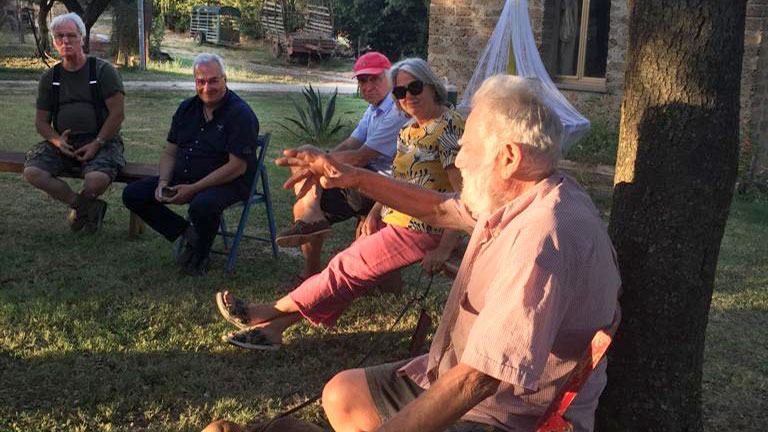In the month of July 2020, Schola Campesina, in collaboration with FAO, carried out a training and test piloting exercise about the TAPE (Tool for Agroecology Performance and Evaluation) in the Biodistretto della Via Amerina e delle Forre, in the province of Lazio, Italy. The farms participating in the experiment included diversified animal farms, part-time hazelnuts organic farmers, more diversified hazelnuts farms and a local convent.
The goal of the experience in Lazio was identifying how TAPE could support farmers and their territory to self-improve in terms of agroecology and thus resilience and sustainability.
Step1-CAET
Step 1 – Characterization of Agroecological Transitions (CAET) of the piloting exercise helped to identify the level of transition to agroecology of the local producers and their community of the Biodistric based on the 10 Elements of Agroecology of FAO. This first step was fundamental to assess the current state of the production systems and the territory of the participants.
What emerged from Step 1 was that the farms that were more diversified and with animals were scoring higher in the Characterization of Agroecological Transitions (CAET). The general trends obtained through the self-evaluations showed how the production systems assessed belonged to a society strong in culture and food tradition as well as human social values. At the same time, the lack of associations and unions helping the farmers access the market and allowing knowledge transfer was reflected by the low levels of governance and co-creation of knowledge.
Step3 – Validation of the results by the community
A collective discussions on the results and more widely on the territory gathered the participating farmers, local residents, the president of the Biodistretto, Schola Campesina, FAO and other professionals of the scientific board of the Biodistretto. The meeting was helpful to discuss and evaluate the current challenges of the territory in switching to a more sustainable production system but also to get the opinion of the farmers about the TAPE. This phase highlighted some concerns of the farmers regarding the “selfishness” of the individual producers, together with a lack in knowledge transfer from universities and agricultural institutions, the incapability of thinking in terms of interconnected systems and a general distrust towards FAO, local politicians and partly the Biodistrict.
The methodology used to carry out Step 1 had to be adapted throughout this first phase and saw some significant changes. Initially, the assessment was conducted by the enumerators of the pilot project that were asking the farmers for answers. However, this methodology resulted in a general feeling of judgment from part of the farmers, who felt labelled as good or bad farmers. This feeling caused a change in the way the questionaries were carried out and led to the use of self-assessment questionnaires, directly conducted by the farmers. The additional problem arising from this new method of evaluation was that the participants had different interpretations of the questions posed by the TAPE. As a result, the methodology saw a final adaptation where the enumerators first explained and discussed the questions with the farmers who then proceeded with the self-assessment.
The pilot experience of Schola Campesina helped outlining the current trends of the producers of the Biodistretto towards sustainability and created a space to share their thoughts and concerns about their transition to agroecological systems.



